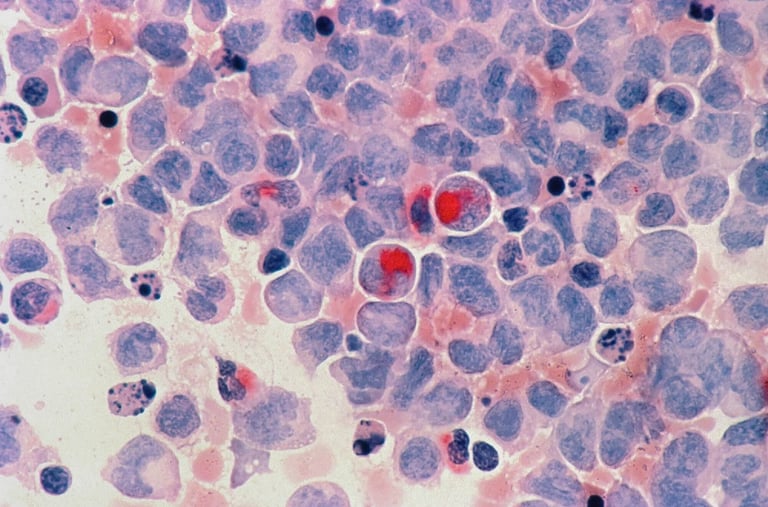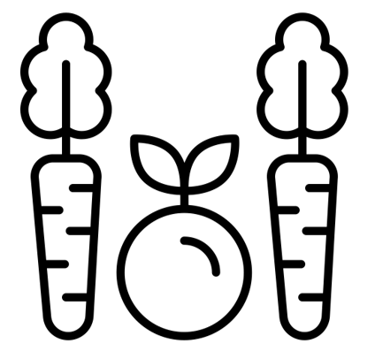Cancer and diet: risk factors


Genetic factors are involved in the development of certain cancers,
against which nothing can be done at present, apart from a healthy diet to reduce the risk of these oncogenes being expressed. Stress (which raises inflammatory cortisol levels), a sedentary lifestyle and lack of sleep (which are particularly detrimental to immunity), inflammatory conditions of any kind and exposure to toxic substances (including tobacco) also play a role.
A bad diet either intervenes directly or accentuates the effect of these factors. A good diet, on the other hand, can help counteract them. To quote Colin Campbell: “there is enough evidence for doctors to consider the potential of changing dietary habits in the prevention and treatment of cancer”.
Let's take a look at the main links between cancer and diet:
Obesity leads to inflammation, which in turn leads to the production of more reactive oxygen species to fight it. Having more reactive oxygen species leads to more DNA damage, with, in some cases, over-expression of carcinogenic genes or under-expression of tumor suppressor genes (this mechanism is also involved in other factors, dietary or otherwise, that generate oxidative stress). In addition, fatty tissue stores hormones, including estrogens, more easily, increasing the risk of hormone-dependent cancers.
Excessive consumption of fast sugars, like obesity, leads to more inflammation, with the consequences described in the previous point. We also know that cancer cells primarily use fast sugars for their growth.
Diabetes: a correlation between diabetes and cancer has been established, but it is not clear whether diabetes causes cancer, or whether the two diseases have a common origin in the excessive consumption of fast sugars. What is certain is that diabetics have an increased incidence of certain cancers, notably pancreatic, hepatic, colorectal, breast, urinary tract and endometrial.
High milk consumption brings estrogen, which increases the risk of hormone-dependent cancers.
High consumption of red meat increases the risk of cancer, due to the presence of nitrites, aggressive cooking, and putrefaction, all of which are carcinogenic.
Heavy alcohol consumption leads, on the one hand, to higher estrogen levels, with an increased risk of hormone-dependent cancers, and, on the other, to DNA hypomethylation, which can lead to overexpression of genes that promote the development of tumors, particularly of the mouth, pharynx, esophagus, stomach, liver and colorectal.
High salt consumption, such as with processed foods, can promote stomach cancer through damage to the stomach lining.
Consumption of fruits, vegetables, legumes or cereals containing mold also increases the risk of cancer, as they contain aflatoxin, which is carcinogenic (liver cancer). Of course, in most cases you can see the presence of mold but beware of artisanal juices that have not undergone high-temperature sterilization, tea bags, wine, peanut butter and so on. Note that the effect of aflatoxin can be countered by curcumin.
Some additives in processed foods are carcinogenic.
Endocrine disruptors can lead to hormone-dependent cancers. They include pesticides in non-organic foods and tap water, phthalates in certain packaging and utensils, alkylphenols in certain packaging and bisphenol A in certain packaging, cans, and yoghurt pots.
Nanoparticles, particularly silver and titanium, are carcinogenic. Titanium nanoparticles are found in plastic bottles, for example, and silver nanoparticles in the pads placed under meat and fish in trays.
The use of non-stick frying pans can be carcinogenic, even those that are not damaged.
Aggressive cooking methods can produce carcinogenic compounds. If you can't avoid them, I recommend accompanying intensely cooked products with plenty of antioxidants, such as raw vegetables, spices, garlic, and so on.
Conversely, it has been observed that the incidence of cancer decreases with higher consumption of vegetables, fruit, legumes and oilseeds (antioxidants, fiber), certain foods such as green tea, garlic and turmeric (antioxidants, anti-inflammatory), omega 3 (anti-inflammatory), and so on. Consumption of any food that promotes liver detoxification is also correlated with a lower incidence of cancer.
To find out more, also read these articles:
On the importance of cooking methods and utensils: https://isabellemaesnutrition.com/en/cooking-utensils
On the issues of industrial foods compared to a natural diet: https://isabellemaesnutrition.com/en/processed-foods
On oxidation and glycation: https://isabellemaesnutrition.com/en/oxidation-glycation
Cancer cells picture by National Cancer Institute
